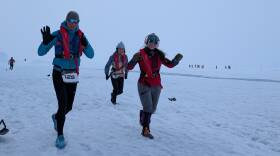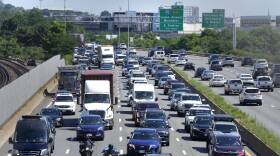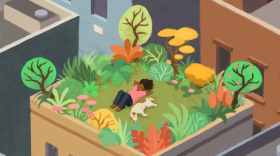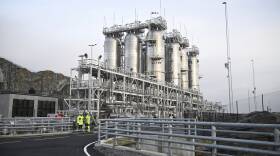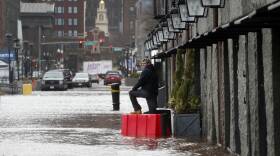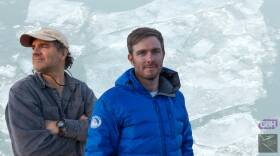-
Massachusetts unveils plan to protect communities from sea level rise
The plan outlines steps to protect property and strengthen infrastructure, such as preserving natural buffers like salt marshes and elevating houses. -
From a Boston ER to Arctic ice: medicine and marathons in extreme environments
Emergency physician Dr. Luke Apisa describes joining an Arctic expedition to ensure safety for runners pushing their limits on melting polar ice. -
Massachusetts is behind on its climate goals. Could tracking vehicle mileage be the answer?
Axios Boston reporter Mike Deehan shares how lawmakers are considering how to get the state closer to its net-zero emissions goals. -
Merrimack Valley prepares to launch New England's first zero emission passenger ferries
Merrimack Valley Transit, or MeVa, says it plans to launch its first-ever zero emission ferries next year — a green plan being eyed by other local and national transit agencies. -
Towns needed mattress recycling. Young adults leaving prison needed jobs. This nonprofit stepped in.
Nearly 50,000 mattresses have been recycled through the program in the past year. -
The Deep Dive: Five Ways to Enjoy Spring in Bloom
Five ways to enjoy spring: get outside, spruce things up, enjoy a treat, celebrate Earth Month, and check out our ViralVibe! -
As carbon dioxide builds up in the atmosphere, many companies are working to capture it
Laura Lammers of the carbon capture company Travertine says if humans were to stop emitting CO2 today, it would still take thousands of years for the Earth to take back what has already been emitted. -
From advanced robots to green steel, here's breakout tech to watch in 2025
The MIT Technology Review released its annual report on what technologies are likely to have the biggest impact on the way we live and work in the future. -
Boston is slowly sinking. That doesn’t help sea level rise due to climate change.
“Because of sea level rise — and subsidence is contributing about 15% to that — we can expect about 50 king tide flooding events per year by the year 2050,” one UMass Lowell professor told GBH News. -
Thaw & Freeze: The Ecological, Geological, and Human Stakes of a Warming Arctic
A rapidly changing Arctic is reshaping everything. Polar bears navigate shrinking expanses of sea ice, thawing permafrost threatens coastal villages, destabilizes infrastructure, and exhales methane, and warming temperatures push more species northward into a greener arctic. These transformations are profound, and their impacts can extend far beyond the region’s ecologies that depend on them.
What do these changes mean for wildlife, humans, and the climate? How is all of this going to play out in different regions and ecosystems around the world? Does understanding these changes and seeing them with your own eyes change the way you see everything else?
Join Biodiversity for a Livable Climate for a conversation that convenes story and science, writer and researcher to help shape our understanding of what this means for the Arctic, our climate and the webs of life that depend on both. Jon Waterman, writer for both Patagonia and NatGeo, and author of Into the Thaw, is by Dr. Flavio Lehner, Chief Climate Scientist at Polar Bears International—one a storyteller of the Arctic’s systems, the other a researcher of them.Partner:Biodiversity for a Livable Climate

